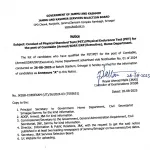In a world filled with distractions and temptations, self-discipline stands as a beacon of strength and resilience, guiding individuals towards their goals and aspirations. From achieving academic excellence to excelling in professional endeavors, the ability to harness self-discipline is paramount in unlocking one’s full potential.
At its core, self-discipline is the practice of controlling one’s impulses, emotions, and actions in pursuit of long-term goals and objectives. It requires commitment, consistency, and a steadfast dedication to personal growth and improvement. While it may not always be easy, the rewards of self-discipline are immeasurable, paving the way for success and fulfillment in all areas of life.
In the realm of academics, self-discipline plays a crucial role in fostering a culture of excellence and achievement. Students who cultivate self-discipline exhibit traits such as time management, organization, and perseverance, enabling them to stay focused and motivated in their studies. By prioritizing their academic responsibilities and adhering to disciplined study routines, they are better equipped to overcome challenges and excel academically.
Similarly, in the professional sphere, self-discipline is a hallmark of success and effectiveness. Employees who demonstrate self-discipline exhibit traits such as punctuality, reliability, and productivity, earning the trust and respect of their colleagues and superiors. By maintaining a disciplined work ethic and consistently delivering high-quality results, they position themselves for advancement and career growth.
Moreover, self-discipline extends beyond academic and professional pursuits—it is a fundamental aspect of personal development and well-being. Individuals who practice self-discipline are better equipped to make healthy lifestyle choices, manage stress and anxiety, and cultivate positive habits that contribute to their overall happiness and fulfillment.
So how can one cultivate self-discipline in their daily lives? It begins with setting clear, achievable goals and establishing a plan of action to accomplish them. Break down larger goals into smaller, manageable tasks, and set deadlines to keep yourself accountable. Create a structured routine that incorporates time for work, study, relaxation, and self-care, and stick to it consistently.
Additionally, develop strategies to overcome common obstacles to self-discipline, such as procrastination, distractions, and self-doubt. Practice mindfulness and self-awareness to identify triggers that may lead to lapses in discipline, and implement strategies to address them effectively. Surround yourself with positive influences and supportive peers who encourage and motivate you to stay disciplined and focused on your goals.
In conclusion, self-discipline is a powerful tool that empowers individuals to take control of their lives and achieve their fullest potential. By cultivating self-discipline in both academic and professional pursuits, individuals can unlock new opportunities, overcome challenges, and lead fulfilling and successful lives. So embrace the power of self-discipline, and watch as it transforms your dreams into reality.
(Author can be reached at: [email protected])





